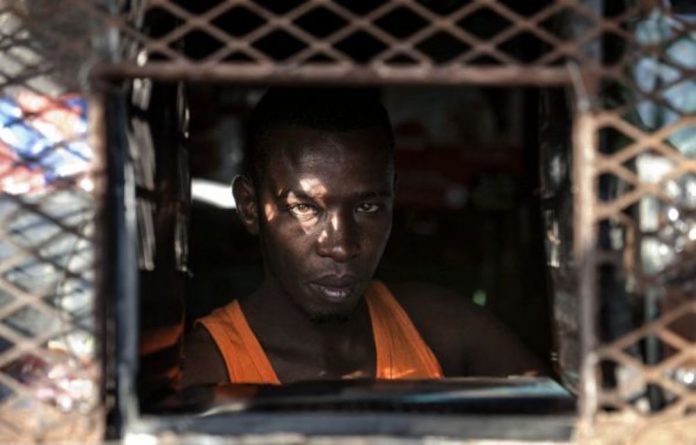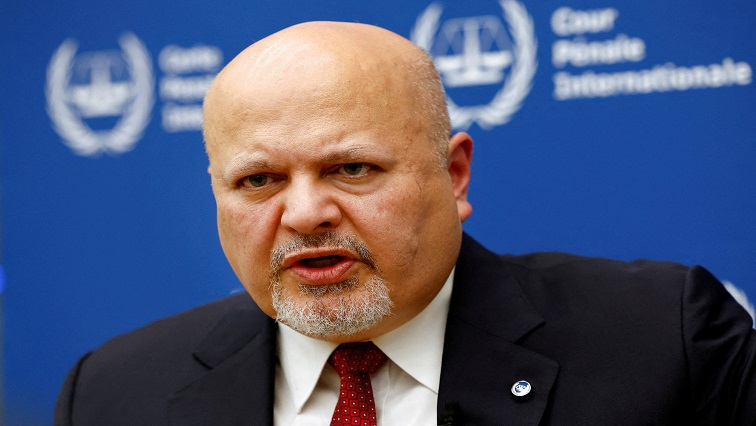

Ramaphosa choosing to prioritize foreign nationals over his own citizens, says Operation Dudula! Civic group Operation Dudula has expressed dissatisfaction with President Cyril Ramaphosa, accusing him of neglecting South Africans in favor of foreign nationals, particularly concerning the township economy.
The group claims the government’s policies disadvantage locals, especially in the operation of spaza shops, a key aspect of township commerce.
Controversy Over Spaza Shop Registrations
Operation Dudula’s grievances center on the president’s recent announcement requiring spaza shop owners to register their businesses within 21 days or face closure.

While the move is part of broader efforts to regulate the informal economy, the group argues that it unfairly benefits foreign nationals operating in South African townships.
According to Operation Dudula, allowing foreign nationals to register spaza shops legitimizes their presence in an economic sector that should be reserved for South African citizens.
Demonstrations in Soweto
The group’s discontent has fueled protests in Jabulani, Soweto, where Operation Dudula members have been vocally opposing foreign-owned spaza shops.
The protests reflect broader frustrations within township communities, where competition from foreign-owned businesses is seen as a threat to local entrepreneurs.

Operation Dudula’s president, Zandile Dabula, criticized President Ramaphosa for what the group perceives as a failure to prioritize South African citizens.
“Unfortunately, we have a president that chooses to prioritize foreign nationals over his own citizens. I mean he is giving these people 21 days to go and get their documents when they have already broken the law,” said Dabula.
The Township Economy Debate
The township economy, often dominated by informal businesses like spaza shops, plays a crucial role in supporting local communities. However, the sector has become a flashpoint for tensions between South African citizens and foreign nationals, with accusations that foreign shop owners undercut locals by offering lower prices and sourcing goods through alternative networks.
Critics argue that foreign nationals bring innovation and investment to the township economy, filling gaps in service delivery and providing essential goods at competitive prices. Others, like Operation Dudula, maintain that the presence of foreign-owned businesses exacerbates unemployment and economic inequality among South Africans.
Government’s Position on Regulation
The government’s move to enforce spaza shop registration is part of a broader strategy to formalize the informal economy.
Registration aims to ensure compliance with tax regulations, health standards, and zoning laws, theoretically creating a level playing field for all business owners.

President Ramaphosa’s 21-day ultimatum reflects an attempt to address both community concerns and broader regulatory challenges.
However, Operation Dudula remains critical, arguing that enforcement efforts should focus on penalizing foreign nationals who have operated without documentation, rather than giving them a grace period to comply.
Broader Implications of Operation Dudula’s Stance
Operation Dudula’s actions and rhetoric have drawn both support and criticism. Supporters argue that the group champions the rights of South Africans and highlights valid concerns about unemployment and economic inequality. Detractors, however, warn that their approach risks fueling xenophobia and undermining social cohesion in communities.
The issue of foreign nationals’ role in the economy is part of a larger debate about South Africa’s immigration policies and their impact on the labor market and informal economy. Critics of Operation Dudula caution against targeting foreign nationals, emphasizing the need for policies that address systemic economic challenges rather than scapegoating specific groups.
Calls for Inclusive Solutions
The situation underscores the need for a balanced approach to managing the township economy. Advocacy groups, policymakers, and community leaders must work together to address concerns about unemployment and economic opportunity without marginalizing or alienating vulnerable groups.
As tensions continue to simmer, finding a sustainable solution will require dialogue, effective policy implementation, and community-driven initiatives that prioritize inclusive growth.
President Ramaphosa’s 21-day ultimatum represents one step in this process, but broader engagement with stakeholders will be crucial in addressing the underlying issues at play.
In the meantime, Operation Dudula’s protests highlight the ongoing frustrations of many South Africans who feel left behind in an economy struggling to deliver on its promises of growth and equity.
#Ramaphosa #choosing #prioritize #foreign #nationals #citizens #Operation #Dudula



